Often overlooked for its glitzier and more famous neighbour, Biarritz, Saint Jean-de-Luz is a charming and picturesque fishing town which should not be missed if you are visiting France’s Basque country.
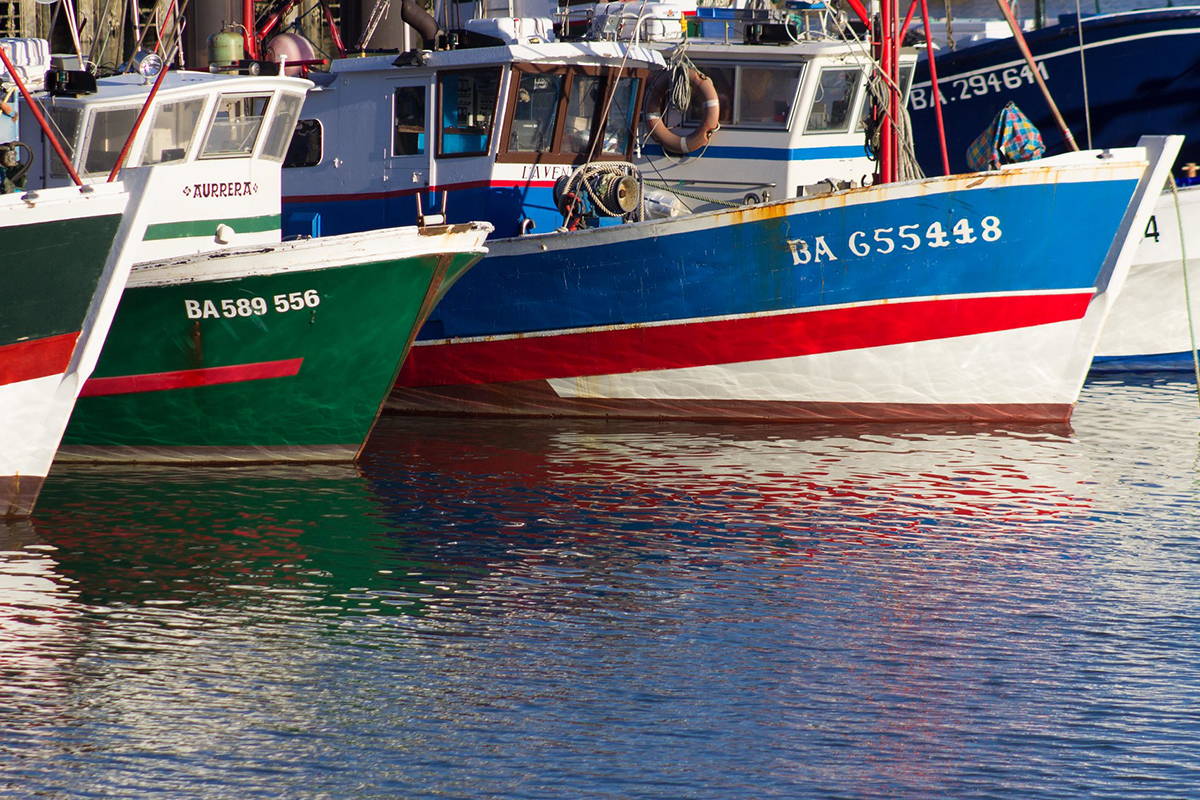
The fishing boats of Saint Jean-de-Luz (Photo: Eneko Bidegain via Flickr / CC BY 2.0)
Located on the beautiful Basque coastline, Saint Jean-de-Luz was once one of the most important fishing ports in France, and an important base for the adventurous 17th century Basque corsairs. The town is also steeped in royal history; It was in Saint Jean-de-Luz that the Sun King Louis XIV famously married Maria Theresa of Austria, Infanta of Spain, back in 1660, and you can visit the 17th century mansion where the marriage took place, now called Maison Louis XIV.
These days, Saint Jean-de-Luz is better known as a popular seaside resort, which attracts families and couples looking for a lively but more low-key destination than nearby Biarritz. One of the main draws is the town’s family-friendly sandy beach, which is framed by 17th century Basque architecture and the Promenade Jacques Thibault. Simply known as la grande plage, or the big beach, its calm waves make it suitable for swimming at all ages, and plenty of activities for kids take place on the sand. If you’re staying for longer then there is also time to explore the area’s four smaller beaches which also offer activities like surfing, sailing and diving.
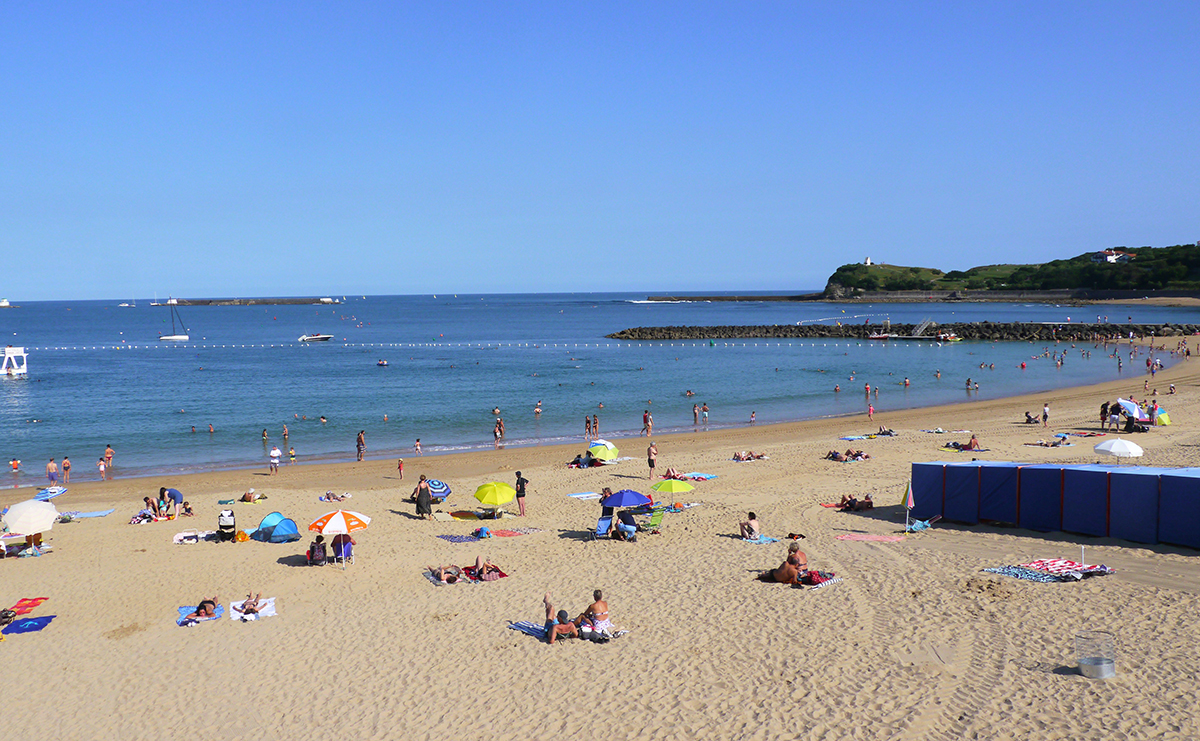
The beach at Saint Jean-de-Luz (Photo: Courtesy of Office de Tourisme St Jean-de-Luz)
A Gastronomic Destination
For foodies, another highlight of Saint Jean-de-Luz is its cuisine. Not only can you sample fresh fish and seafood directly from the town’s own port, but it’s also a great place to try traditional Basque cuisine. Fine dining is easy to find; many of the town’s restaurants are honoured in the Michelin Guide and three hold one of the guide’s coveted stars.
One of the best ways to soak up the food culture of any town or city is the local market. In Saint Jean-de-Luz the market hall is open every day from 7am to 1pm, with a food market held every Tuesday and Friday morning throughout the year and also on Saturday mornings in July and August. As well as browsing the stalls, which sell fruit, vegetables, meat, fish, flowers, and local delicacies, you can also stop for a drink at the bar and enjoy some Basque pintxos.
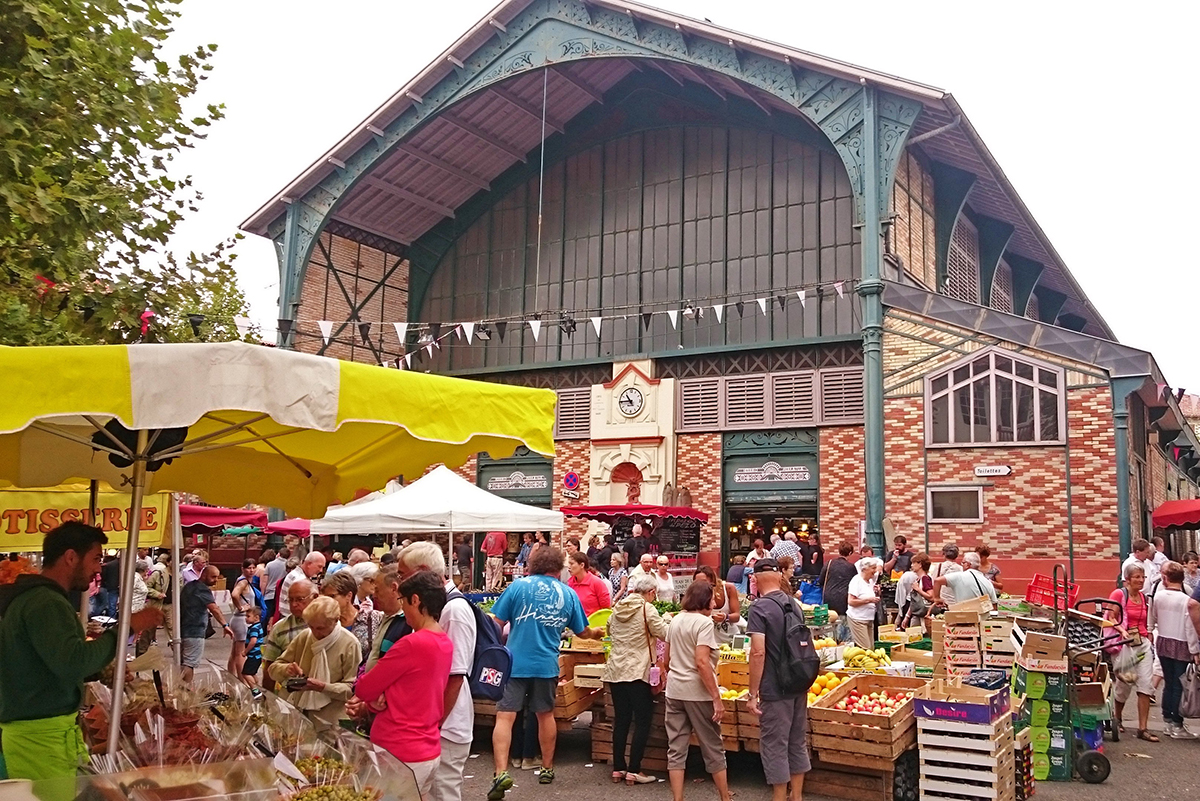
Saint Jean-de-Luz Market (Photo: Courtesy of Pays de Saint Jean-de-Luz Terre et Côte Basques)
Like with its food, Saint Jean-de-Luz does a great job of championing Basque products and craftsmanship, and the small town is packed with shops selling local handicrafts. The main shopping street is Rue Gambetta, where you can pick up everything from hand-made chocolates to espadrilles and striped Basque linens. By exploring the quieter streets behind the street though and by the promenade, you will encounter fewer tourists and souvenir shops, and more independent stores such as antiques shops and vintage boutiques.
Throughout the year the town comes alive with cultural and religious festivals, which you might be lucky enough to catch even if you’re not in summer. The Basque carnival of Ihauteriak takes in place in February, the Andalusian festival is held during Pentecost, and the Festival of Saint Jean, who is of course patron saint of the city, is held at the end of June. More unusually, but fittingly for a port town revered for its fine dining, Saint Jean-de-Luz hosts a Tuna Festival, Sardine Night Festival and an international Amateur Tuna Fishing Championship. It now also has its own International Film Festival, which takes places in October each year.
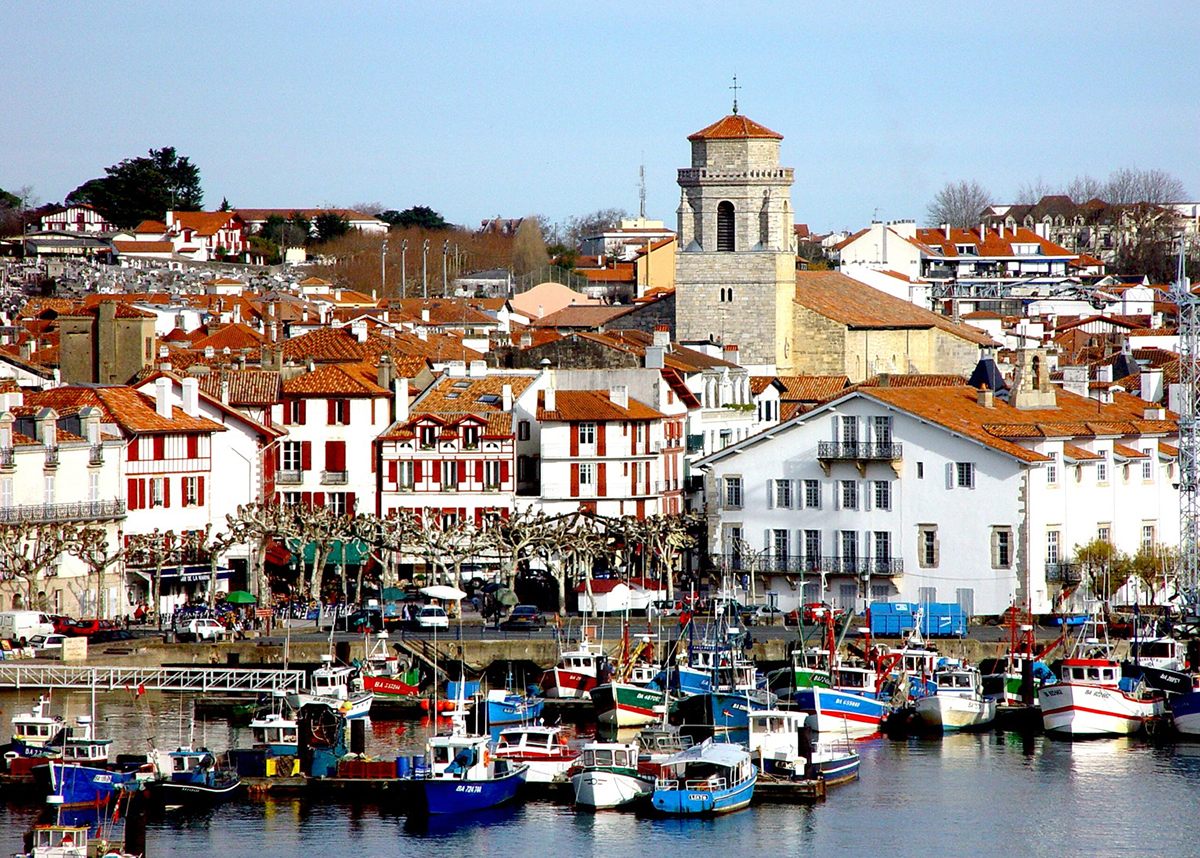
Saint Jean-de-Luz Port (Photo: Courtesy of Office de Tourisme St Jean-de-Luz)
Other Points of Interest
The working port was used back as far as the 15th century, when the fisherman would take out their boats to fish for cod. Now it is used to fish for anchovy, tuna and hake. Notably some of the hake is line-caught, which focuses on quality rather than quantity. The catch available to buy from fishmongers is found in Saint Jean-de-Luz’s covered market.
The port now not only serves a practical purpose in the city, but it’s also an attractive place to take a stroll and offers some great photo opportunities. Also look out for the two almost Art Deco-style lighthouses by architect André Pavlovsky, called les feux des Saint-Jean-de-Luz at Ciboure. You’ll spot the one by the port with a bold red stripe, which indicates to sailors it is the Saint Jean-de-Luz lighthouse, while just across the water in Ciboure the monument has a green stripe.
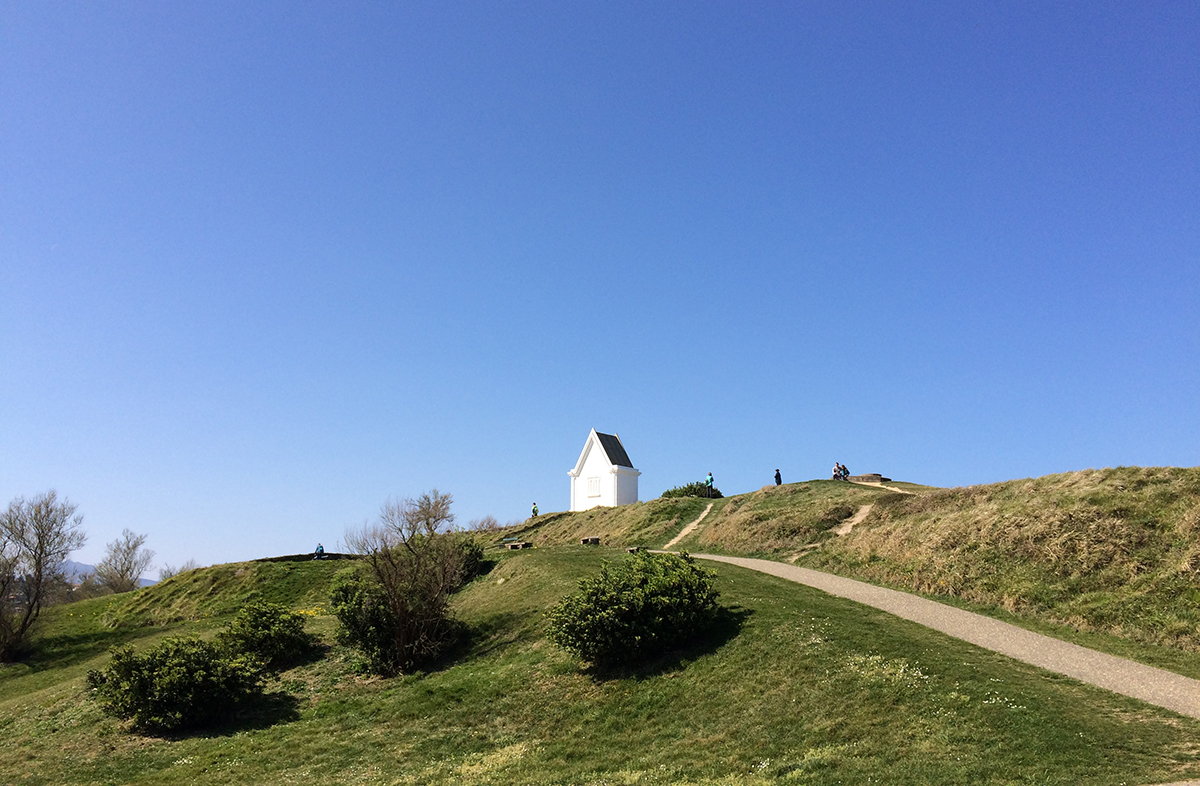
Saint Barbe Chapel, Saint Jean-de-Luz (Photo: Nicola Leigh Stewart for TravelMag.com)
If you’re staying at La Réserve Saint Jean-de-Luz then you’ll already know about the picturesque cliff-side walk you need to take from the hotel into the town, which boasts a fantastic view of the beach, especially at sundown. It’s also worth taking a walk up there to see the Chapelle Sainte-Barbe on Pointe de Sainte-Barbe, a small all-white building which cuts a rather striking figure on the top of the hill and makes for a photogenic spot.
Hotels
One of the most luxurious addresses to check in to in Saint Jean-de-Luz is Hotel Parc Victoria (5 rue Cepe), a gorgeous five-star property and Relais & Chateaux member. For a hotel which boasts such a central location, it still offers a peaceful and private stay thanks to being surrounded by gated doors and its own private garden. Rooms are furnished in a vintage-style décor, and facilities include a restaurant, lounge area, swimming pool, and a small hot tub and sauna.

Hotel Parc Victoria (Photo: Courtesy of Hotel Parc Victoria)
If you want to get out of town then consider La Réserve Saint Jean-de-Luz (Pointe Sainte Barbe, 1 Avenue Gaëtan Bernoville), situated right on the Basque coastline with a fantastic view of the Bay of Biscay, best enjoyed from the hotel’s outdoor infinity pool. As well as ocean views, the hotel also boasts a seven-acre park, gastronomic restaurant (more on this later), bar, a small spa, tennis courts, and ping pong.

La Réserve Saint Jean-de-Luz (Photo: Courtesy of La Réserve Saint-Jean-de-Luz)
For a more budget option, check in to Grand Hotel de la Poste (83 rue Gambetta), housed in a historic 18th-century building which was once a coaching inn popular for stopping off on the way to Spain. It is now a quaint three-star boutique hotel with just 34 rooms and an excellent city-centre location just a five-minute walk from the beach.
Restaurants & Bars
In town, the one-Michelin-starred Le Brouillarta (48 Promenade Jacques Thibaud) serves up a delectable three-course gastronomic menu starting at just €49. Expect plenty of fresh fish, seafood, and Basque meats, combined with Chef Guillaume Roget’s sometimes unusual choice of flavourful ingredients – think foie gras with ginger, and fish of the day with artichoke, verveine and chorizo. With the restaurant located on the promenade, make sure to book a table by the window so you can enjoy a sea view, especially if you’ll be dining around sunset.
For such a small seaside town, Saint Jean-de-Luz offers up a host of great restaurants, including a surprising amount of fine dining options. If your staying at La Réserve Saint Jean-de-Luz, then an evening at the hotel’s Restaurant Ilura is a must. Executive Chef Pierre Boffo champions local and seasonal produce from the Basque Country, and taking inspiration from his time working in Australia, also offers a good selection of vegetarian, gluten-free, and dairy-free dishes on his menu.

Restaurant Ilura at La Réserve Saint Jean-de-Luz (Photo: Courtesy of La Réserve Saint-Jean-de-Luz)
Le Kaïku (17 rue de la République) is another destination point for gastronomes; chef Nicolas Borombo cut his teeth at the Hôtel de Crillon and George V in Paris before opening his own restaurant in Saint Jean-de-Luz, which now holds a Michelin star. Here Borombo has designed a thoroughly modern menu which combines Basque produce with Japanese influences. It’s one of the pricier options in town, with a Discovery Menu set at €78, but truly an experience.
For something more relaxed, Chez Pablo (5 rue Mademoiselle Etcheto) is a friendly Basque bistro hidden away from the more touristy parts of Saint Jean-de-Luz, meaning you’ll find it packed with locals enjoying the homemade food and convivial atmosphere. The specialty here is fish, but you can also find some French classics such as steak frites as well as sharing plates of tapas. If you head over at lunch time, you can take advantage of the great value plat du jour (dish of the day) for just €9, or add on a dessert for an extra €3.
Of course, you can’t visit France without visiting a great boulangerie (bakery). La Grange à Pains (17 Avenue Joachim Labrouche) is excellent and located right in the centre of the town. The artisan breads here are so good that they even supply Chef Boffo and the team at La Réserve Saint Jean-de-Luz.
If you’re in the mood for a few drinks, then the buzzy rue de la République is a good place to start a night of bar-hopping. Pub du Corsaire (16 rue de la République) is a popular spot with locals, which gets livelier as the night goes on. It also serves up a much-talked about tapas menu to help sustain you for another round of drinks.

The swimming pool at Hotel Parc Victoria (Photo: Courtesy of Hotel Parc Victoria)
Shopping
One of the main shopping attractions of Saint Jean-de-Luz is its charming antique shops, and you’ll spot many as you’re ambling around town. However, one to make a point of popping in to is Frip’ou net’ (21, rue Loquin). Owner Marie-Françoise Dachary speaks excellent English due to her time spent living abroad, and she is happy to chat about her adventures in Australia and London during the swinging 60s, or tell you more about her antique treasure trove, which includes vintage clothing, Baccarat cut crystal glasses in perfect condition, and more unusual dining accessories such as caviar bowls. The shop is open Tuesday to Saturday between 4pm and 6pm only, although Marie-Françoise occasionally opens on Sunday and Monday too, so it might be worth passing by.
If you’re looking for more practical homeware, then Quincallerie Debibié (35 rue Gambetta) is a hardware shop which also sells pottery in the traditional Basque style. For another souvenir idea, skip the usual tourist traps and head to Crusoée (25 rue Joseph Garat), where Stéphane Pirel sells lino prints of scenes from Saint Jean-de-Luz and other spots on the Basque coast.
Founded in 1660 the historic Maison Adam (4 place Louis XIV, 6 place Louis XIV, and 49 rue Léon Gambetta), is the place to try traditional French macarons, which are handmade each day following a secret recipe. Don’t expect the pastel coloured treats you might have seen at places such as Ladurée in Paris though: Maison Adam’s are much simpler and more rustic in appearance, but no less delicious. In fact, they were even deemed fit for a king when they were served at Louis XIV’s wedding to Maria Theresa. You can also buy chocolates, Basque touron, which is like marzipan, and gâteau Basque. Maison Adam’s vintage-style boxes also make an attractive souvenir keepsake.